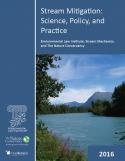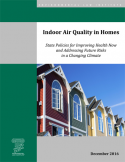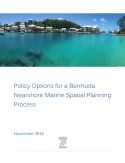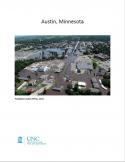
Research Reports
ELI publishes Research Reports available for free download that present the analysis and conclusions of the policy studies ELI undertakes to improve environmental law and policy. These reports contribute to education of the profession and disseminate diverse points of view and opinions to stimulate a robust and creative exchange of ideas. Those publications, which express opinions of the authors and not necessarily those of the Institute, its Board of Directors, or funding organizations, exemplify ELI’s commitment to dialogue with all sectors.
ELI, Stream Mechanics, and The Nature Conservancy (TNC) have partnered to provide a wide-ranging view of the state of stream compensatory mitigation. This report examines how stream compensatory mitigation has evolved in policy and practice and was based on a series of white papers, which can be found on the State of Stream Compensatory Mitigation page.
Read More >
Working with New York, New Jersey, Delaware, Maryland, and Virginia — the five members of the Mid-Atlantic Regional Council on the Ocean (MARCO) — the Environmental Law Institute prepared a detailed assessment of methods to identify, conserve, and restore wetlands for protection of communities and ecosystems in the face of rapid climate change. ELI in collaboration with an expert panel designed an approach that can accommodate continuous improvement by resource managers, legislators, and policy makers. The approach relies on:
Read More >
Communities throughout the U.S. are experiencing a variety of conditions associated with climate change – heat waves, droughts, intense storms and flooding, and more severe wildfires.

Bermuda’s nearshore marine environment is a critical economic, environmental, and social resource that supports a wide array of recreational and commercial uses, including but not limited to commercial and recreational fishing, dive tourism, commercial and cruise shipping, and undersea cabling. These uses must coexist, and the challenge of managing the intensive use of the Bermuda Platform and other nearshore waters will increase in the future as new activities, like offshore energy and aquaculture facilities, are introduced.
Read More >
In this case study, the University of North Carolina Institute for the Environment and the Environmental Law Institute examine floodplain buyouts in Austin, Minnesota that were funded by the Hazard Mitigation Grant Program.
Back to list of floodplain buyout case studies
Read More >